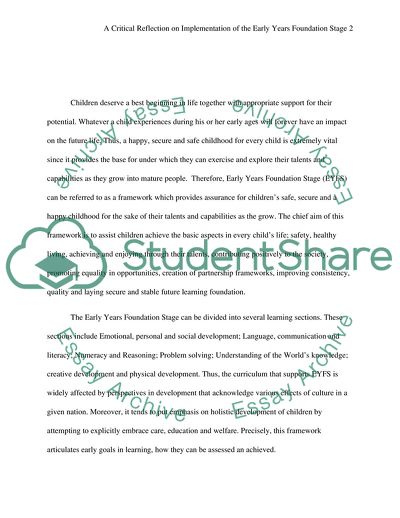Cite this document
(Implementation of the Early Years Foundation Stage Report Example | Topics and Well Written Essays - 1500 words, n.d.)
Implementation of the Early Years Foundation Stage Report Example | Topics and Well Written Essays - 1500 words. https://studentshare.org/education/1822260-a-critical-reflection-on-the-implementation-of-the-early-years-foundation-stage-eyfs
Implementation of the Early Years Foundation Stage Report Example | Topics and Well Written Essays - 1500 words. https://studentshare.org/education/1822260-a-critical-reflection-on-the-implementation-of-the-early-years-foundation-stage-eyfs
(Implementation of the Early Years Foundation Stage Report Example | Topics and Well Written Essays - 1500 Words)
Implementation of the Early Years Foundation Stage Report Example | Topics and Well Written Essays - 1500 Words. https://studentshare.org/education/1822260-a-critical-reflection-on-the-implementation-of-the-early-years-foundation-stage-eyfs.
Implementation of the Early Years Foundation Stage Report Example | Topics and Well Written Essays - 1500 Words. https://studentshare.org/education/1822260-a-critical-reflection-on-the-implementation-of-the-early-years-foundation-stage-eyfs.
“Implementation of the Early Years Foundation Stage Report Example | Topics and Well Written Essays - 1500 Words”. https://studentshare.org/education/1822260-a-critical-reflection-on-the-implementation-of-the-early-years-foundation-stage-eyfs.


